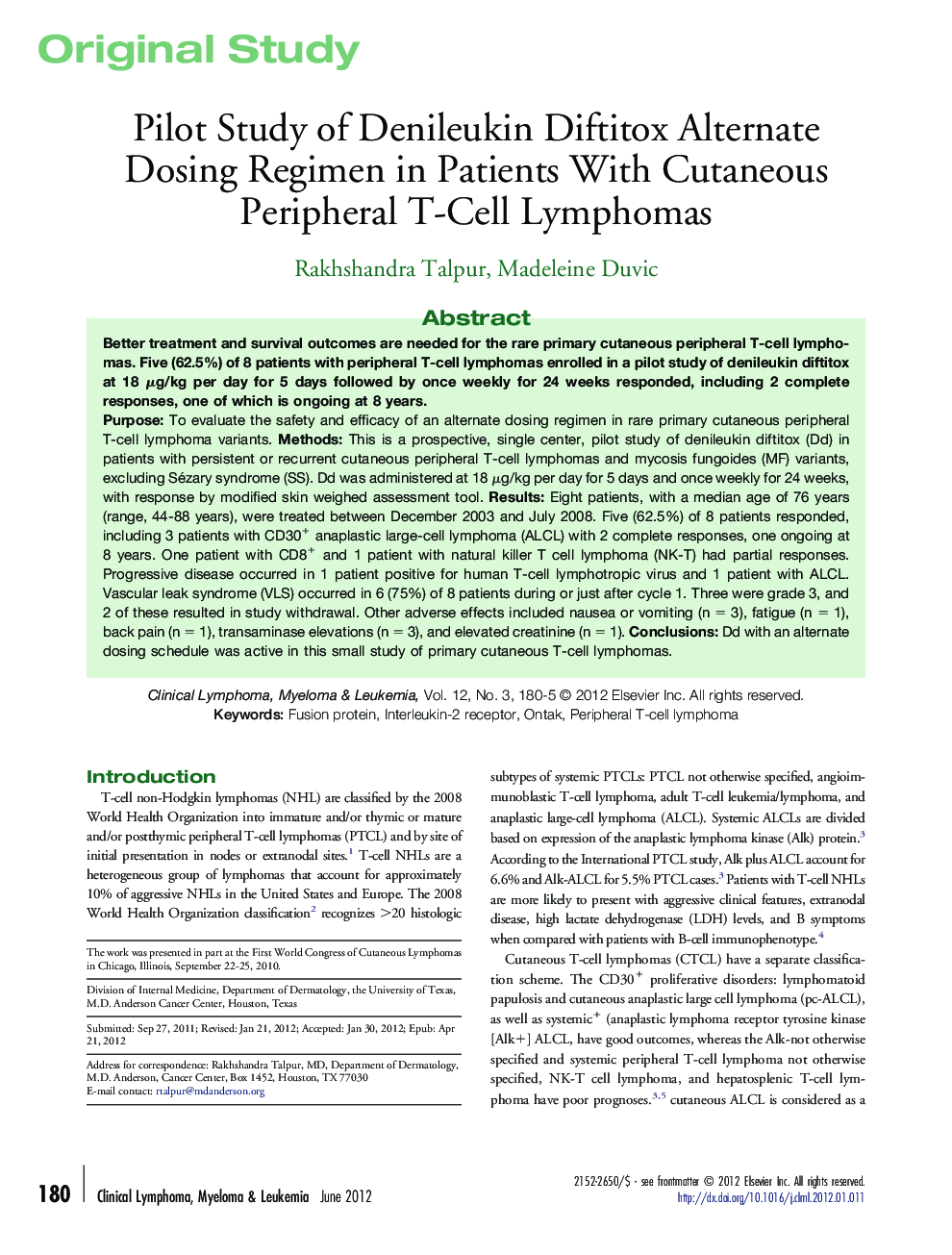| Article ID | Journal | Published Year | Pages | File Type |
|---|---|---|---|---|
| 2754966 | Clinical Lymphoma Myeloma and Leukemia | 2012 | 6 Pages |
PurposeTo evaluate the safety and efficacy of an alternate dosing regimen in rare primary cutaneous peripheral T-cell lymphoma variants.MethodsThis is a prospective, single center, pilot study of denileukin diftitox (Dd) in patients with persistent or recurrent cutaneous peripheral T-cell lymphomas and mycosis fungoides (MF) variants, excluding Sézary syndrome (SS). Dd was administered at 18 μg/kg per day for 5 days and once weekly for 24 weeks, with response by modified skin weighed assessment tool.ResultsEight patients, with a median age of 76 years (range, 44-88 years), were treated between December 2003 and July 2008. Five (62.5%) of 8 patients responded, including 3 patients with CD30+ anaplastic large-cell lymphoma (ALCL) with 2 complete responses, one ongoing at 8 years. One patient with CD8+ and 1 patient with natural killer T cell lymphoma (NK-T) had partial responses. Progressive disease occurred in 1 patient positive for human T-cell lymphotropic virus and 1 patient with ALCL. Vascular leak syndrome (VLS) occurred in 6 (75%) of 8 patients during or just after cycle 1. Three were grade 3, and 2 of these resulted in study withdrawal. Other adverse effects included nausea or vomiting (n = 3), fatigue (n = 1), back pain (n = 1), transaminase elevations (n = 3), and elevated creatinine (n = 1).ConclusionsDd with an alternate dosing schedule was active in this small study of primary cutaneous T-cell lymphomas.
